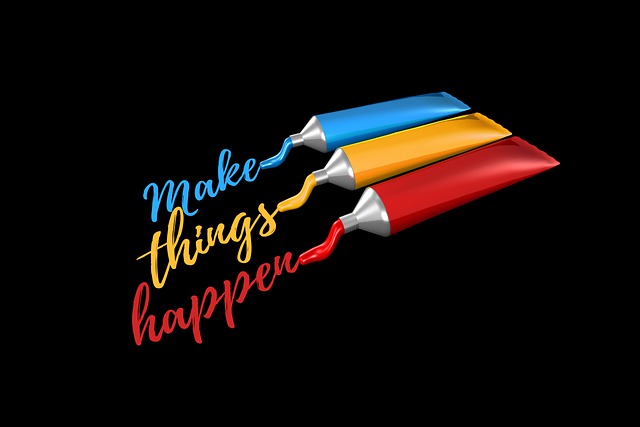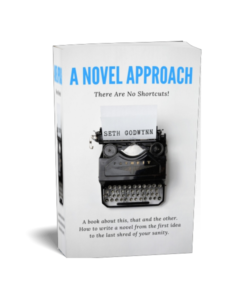Where Did All The Creativity Go?
(And Why Does Nobody Want To Publish Your Work?)
Seth Godwynn
I’m sure you’ve wondered why it is that modern entertainment is filled to overflowing with second-rate crap, while talented writers such as yourself languish, unable to get a publisher interested in reading one of your works. By comparison, the 70s and 80s were inundated with a wealth of creativity, which gradually declined decade by decade into the cesspool we ended up with .
Perhaps they really had as much dross as we have now, but history only remembers the occasional great thing. Perhaps entertainment is so oversaturated with thousands of TV channels, online streaming, video games and phones that there isn’t as much money going around that enables people to take risks anymore? There are no doubt multiple factors, but one thing most people agree on is that it’s a sure sign the entertainment industry is irreparably broken.
The death of creativity is certainly a popular sentiment, and one we often parrot right here at Edgeverse—evening all!—but it’s not entirely true. The industry isn’t broken at all. On the contrary, it’s working exactly the way it was always intended to. They create and publish work that they think is going to bring a return on their investment, and they’re very, very good at it. They’re not going to waste time reading manuscripts and screenplays and listening to demo tapes that people have sent in unsolicited. Why? Because the originality of a complete stranger is a risky venture, and they have more than ample safe revenue streams to milk already. This is not a recent state of affairs—it has always been that way. The lottery game of sending in your work to as many publishers as possible and hoping for the best has never yielded positive results, and it’s about time that myth was put out to pasture.
If you look at all of the artists and acts that have made it big over the decades, you’ll notice that by and large they fit into one of two categories, and in some instances, both.

The first of these categories are payroll artists. These are people who are directly employed in the industry. They make creative works, such as music, scripts and even novels . They operate cameras, they set up lights, engineer sound, build sets, design and apply make-up and costumes. They create artwork for movie posters and book covers, motion graphics for TV shows and they edit movies from raw footage into a coherent and concise story. And at the end of each month, they get a standard paycheque for their time. They’re told what to create, and the result is invariably a team effort shared by so many people that they can never point it out on the street and say, “I made that” (though in fairness, a lot of us do anyway…)
But a lot of well known artists got their big break this way—by working as an artist inside the industry, excelling at it, and being granted increasingly challenging assignments with appropriately adjusted creative freedom. Screenwriters are literally paid a salary to have somebody else showcase their work: if that’s not an opportunity, I don’t know what is. If there’s a popular TV drama that has a somewhat fanatical fanbase, there’s a very good chance that somebody will have noticed and made known a trend: all the best episodes were written by the same screenwriter, or directed by the same director. This is how these people that excel at their craft get noticed, and how they advance to better projects that will make them a household name.

And believe you me, when somebody who is a household name approaches a traditional publisher of fiction and says, “I’m writing a book,” they’ll often jump at the chance to fund and publish it. The book will market itself, as there’s a pre-existing fanbase that will pre-order it, and probably enjoy it enough that they’ll buy a follow up too, and any other merchandising they can squeeze out of it. Somebody like that is a safe investment, as long as they don’t do something stupid, like go on a radio show and wax lyrical about the investment opportunities of international drug smuggling, the benefits of conservative eugenics, and why dogs actually really like being kicked by frustrated adults and that we should all do it more.

The second of these categories are artists with skin in the game. For musicians, these are bands that regularly play in local clubs, often as a supporting act – artists working for no pay. For writers, becoming frequent contributors of short or serialised stories to local or highly specialised magazines with a small but potentially increasing readership, again for free, is how they start to get a name for themselves. They often spend years building up their own fanbase.
These days, you don’t need to publish in a physical magazine, as there are plenty of online options that take external contributions. Fan forums are another way to generate interest in YOU, by frequently posting interesting and insightful observations, comments and other contributions on a given topic. The more people that enjoy your postings, the more of a fanbase you’ll build.
And like the payroll artists who use their jobs to make names for themselves, traditional publishers are more likely to pay interest in your work if you already have a credible audience that can be exploited.
For a smaller fanbase, there’s also the option to self publish (which if you’re a musician means self-funding a recording session). Self-publishing isn’t limited to vanity press: it can be a valuable tool if you already have people willing to buy it that aren’t related to you or owe you favours. If you’re lucky, you might make back the cost of the recording, but don’t bank on it. It does however add credibility to your brand, and the people who consider themselves lucky enough to own an original copy are more likely to share it with their friends!
In both categories, the key is investing your time in creating your own brand, because your work is never going to sell itself on its own merits, neither to a traditional publisher nor an unsuspecting public.
So returning to the titular question about the apparent lack of creativity, the answer is that it is where it’s always been and more. It’s fiction published in small magazines, and nowadays online for free on fan sites and other forums. It’s bands performing live in clubs, and putting their performances and high-quality home recordings onto YouTube. It’s movies being aired at Cannes and other film festivals, and now easily streamed online at low cost. It’s independently produced TV shows syndicated to popular streaming services who can publish it with very little overhead. It’s everywhere. 80% of it is crap, but 80% of it was always crap. The remaining 20% you take your chances with, and there’s bound to be some quality content in there somewhere – it’s the law of averages!
But because anybody can easily and cheaply publish their artistic works online, and the odds of finding anything worthwhile among it are minimal, you really have to remember that being published does not guarantee you an audience. Heck, even with your best efforts to build a brand, the best you can really hope for (assuming you ever finish your first novel) is that one day, somebody might actually read it.
And hate it.
And they’ll probably hate you too!
So let’s do that then!
Many thanks for reading this article. We hope it was interesting, informative and entertaining. Follow us on social media or share our content on your own pages. It helps us grow so we can create more free content to help you.


